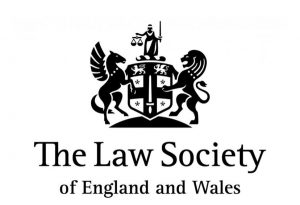When it comes to property ownership in the united kingdom disputes, disagreements often arise over how assets are divided. Property, being the most substantial asset many own, is frequently at the heart of these disputes. Two primary areas of law deal with such matters:
- Trusts of Land Claim (ToLATA): Stemming from the Trusts of Land and Appointment of Trustees Act 1996, a ToLATA claim lets someone assert a beneficial interest in a property.
This might be due to monetary contributions toward the purchase of the property or for maintaining the property. Such claims can arise when a property is either solely or jointly owned. Typically, these claims are made while both involved parties are still living.
- Inheritance Act Claim: Under the Inheritance (Provision for Family and Dependents) Act 1975, this claim is lodged when someone believes they haven’t been adequately provided for from an estate, such as when contesting a will. Such a claim is only viable after the death of the concerned party.
These two claims are closely linked, primarily because most estates’ main asset is property.
To administer an estate, determining the deceased’s property interest is crucial.
A notable intersection between these claims is Section 9 of the Inheritance Act. This allows claimants to retrieve an interest that would have bypassed the estate because the property was under joint tenancy.
However, applications under Section 2 of the Inheritance Act must be made within six months of the Grant of Probate, and this time limit isn’t flexible.
The decision of the court in Bhusate v Patel and Others (2018) EWHC 2362 (Ch) illustrates this point.
Background: Mr. Bhusate, a property owner in Golders Green, London, passed away intestate in April 1990. Survived by 6 children and his third wife, Mrs. Bhusate, she continued residing in the property, which remained in Mr. Bhusate’s legal name. Mrs. Bhusate filed a claim in November 2017.
Claims by Mrs. Bhusate: a) Exclusive beneficial ownership, or b) Joint beneficial ownership with the children, or c) Entitlement to her statutory legacy and interest from April 1990, or d) A plea for reasonable financial provision from the estate (seeking a time extension).
The court dismissed her beneficial ownership claims, as they were based on conflicting facts and intents. The statutory legacy claim was also dismissed due to the 12-year time limit. Moreover, her request for a time extension for the inheritance act claim was denied, given the delay of almost 30 years.
Regrettably, had Mrs. Bhusate properly managed the estate, she would have inherited a considerable sum and retained property interest. Instead, she was left without an inheritance or home.
Takeaways:
- While you can bring both claims concurrently, the strict time constraints on inheritance act claims must be heeded.
- Clarity on property intentions is crucial; presenting all possible scenarios can be counterproductive.
- Legal battles can be draining in terms of time, emotions, and finances. Secure specialist advice early on to navigate effectively.
- Acting swiftly is essential. Delays can prove costly, as evidenced by Mrs. Bhusate’s predicament.
Please note that the information provided here serves general purposes only and should not be considered a substitute for professional legal advice.


